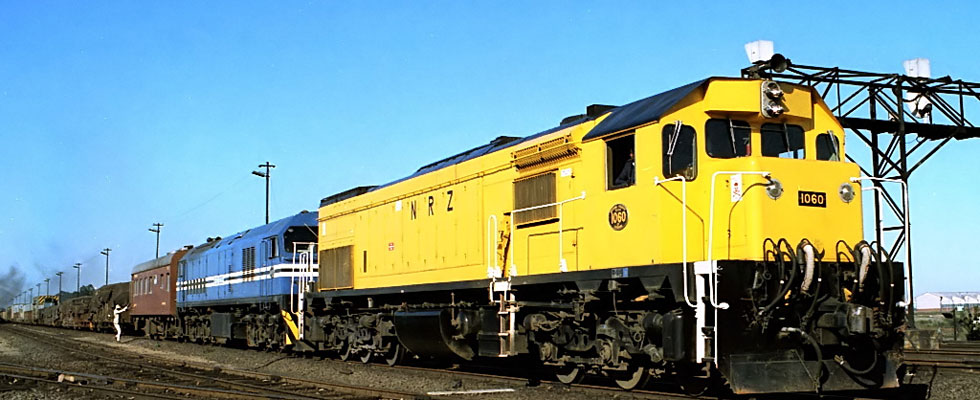
BY TATIRA ZWINOIRA
THE National Railways of Zimbabwe (NRZ) has embarked on a managerial shake-up to reduce its wage bill after it emerged that the parastatal was top-heavy.
The two-year restructuring exercise aims to cut 50 managerial posts from the current 180.
This comes as the under-capitalised parastatal is struggling to perform due to poor management.
“In 2016, government directed that NRZ must retrench and NRZ had a workforce of about 8 000. They were given a week to layoff half of the workers because the salaries alone — the percentage of salaries and revenues became unacceptable,” NRZ board chairman Martin Dinha told journalists in Harare last Friday.
“You are aware that parastatals, local authorities and parastatals must have a percentage of 70/30, 30% must be your cost of doing business and 70% must be what you must use for recurrent expenditure and so forth. So, that percentage had gone high (80%). So, government had instructed that NRZ retrench and what happened?
“NRZ retrenched almost half of its labour force, but the retrenchment was done in such a way that the shop floor workers were affected. So, it was left with a top heavy management system where you have too many managers who eat too much and a few labour force. It’s common in many companies that when retrenchments are done, normally managers preserve their jobs, yet the 10 managers in terms of the salaries and perks may be equivalent to 100 workers.”
In terms of the executive management, this will be reduced to three from the current five, leaving only the chief executive officer, chief operations officer and financial director. “So, this is ‘phase one’ which is executive directors. Phase two is the middle management, then we are going to look at phase three whether there will be a need to cut the numbers down there but the numbers were already cut in 2016,” Dinha said.
- Chamisa under fire over US$120K donation
- Mavhunga puts DeMbare into Chibuku quarterfinals
- Pension funds bet on Cabora Bassa oilfields
- Councils defy govt fire tender directive
Keep Reading
“What we had remained with was a top heavy management that was eating too much into salaries and other perks and so forth.”
The restructuring exercise is being initiated under a plan by the Ministry of Transport as part of government plans to make parastatals and State entities leaner and more effective as these firms have been a drain on the fiscus.
In the case of the NRZ, the poor management of the parastatal and years of loss-making has made the entity unable to compete with its regional counterparts.
This is seen in the fact that NRZ is now transporting 2,7 million tonnes worth of goods annually, from a peak of 18 million tonnes, which requires two million litres of diesel per month, according to Dinha.











